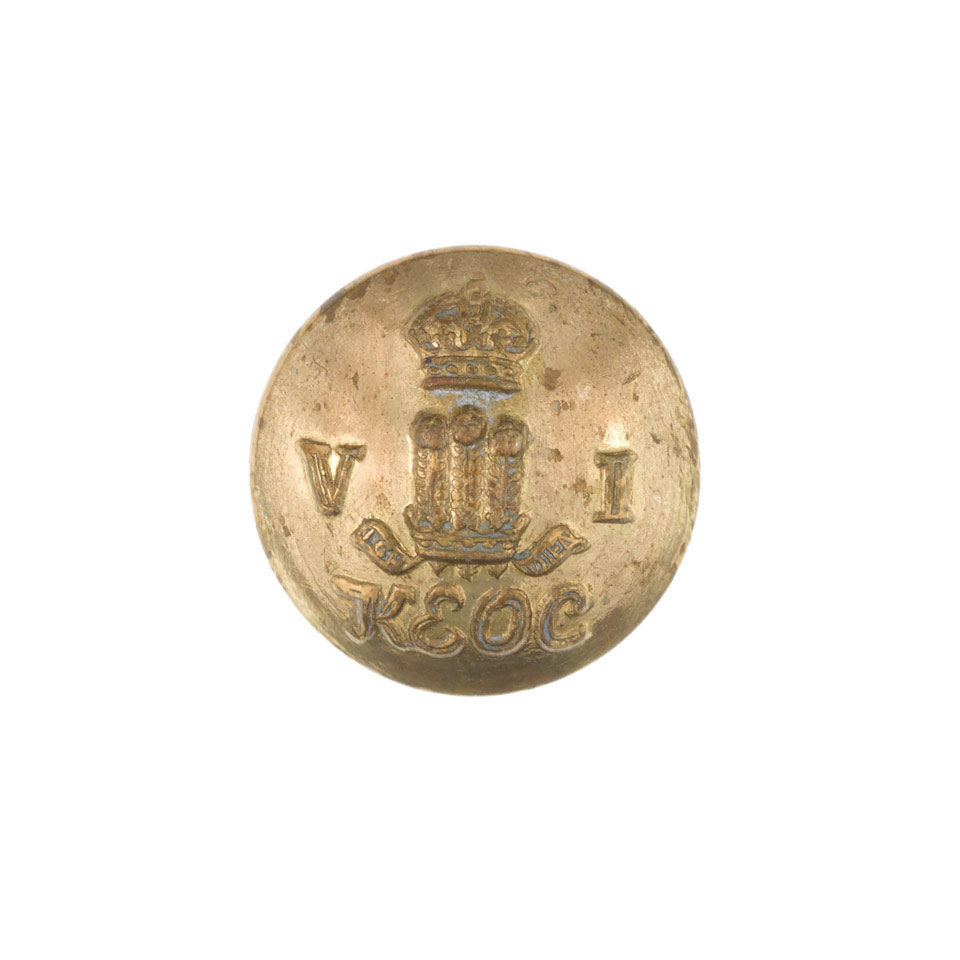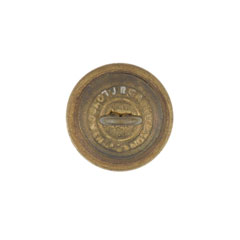
Online Collection
Button, officer, 6th King Edward's Own Cavalry, 1906-1922
Small, circular, gilt button by J R Gaunt and Son Limited, London, with the Prince of Wales's feathers, coronet and scroll bearing the motto, 'Ich Dien' (I Serve), surmounted by a King's Crown, flanked by the Roman numerals of the regimental number, 'V' and 'I', above the unit monogram, 'KEOC'.
The 6th King Edward's Own Cavalry traced its history back to the 8th Irregular Horse raised in 1842. It was subsequently retitled as the 6th Regiment of Bengal Cavalry (1861-1883), the 6th (The Prince of Wales's) Bengal Cavalry (1883-1901), the 6th (Prince of Wales's) Bengal Cavalry (1901-1903), 6th Prince of Wales's Cavalry (1903-1906), and then, in 1906, it became the 6th King Edward's Own Cavalry.
At the outbreak of World War One (1914-1918), the regiment consisted of one squadron each of Jat Sikhs, Sikhs, Jats and Hindustani Muslims, and was stationed at Sialkot in the Punjab. The regiment was attached to the 2nd (Sialkot) Cavalry Brigade, 1st Indian Cavalry Division and arrived in France in November 1914, where it was involved in the 1st Battle of Ypres. It would go on to also receive the battle honours, 'Somme 1916', 'Morval', 'Cambrai 1917' and 'France and Flanders 1914-18'.
The regiment moved to Egypt in March 1918 to support General Allenby's final destruction of the Ottoman Army, and earned the further battle honours, 'Megiddo', 'Sharon', 'Damascus', and 'Palestine 1918'. The regiment stayed in the Middle East on garrison duties, before finally returning to India in October 1920. In 1921 the regiment was amalgamated with the 7th Hariana Lancers, to form the 6th/7th Cavalry, with the new title, 18th King Edward's Own Cavalry in 1922.
From the Field Marshal Sir John Chapple Indian Army Collection.
NAM Accession Number
NAM. 2013-10-20-19-26
Copyright/Ownership
National Army Museum Copyright
Location
National Army Museum, Study collection
Object URL
https://collection.nam.ac.uk/detail.php?acc=2013-10-20-19-26


